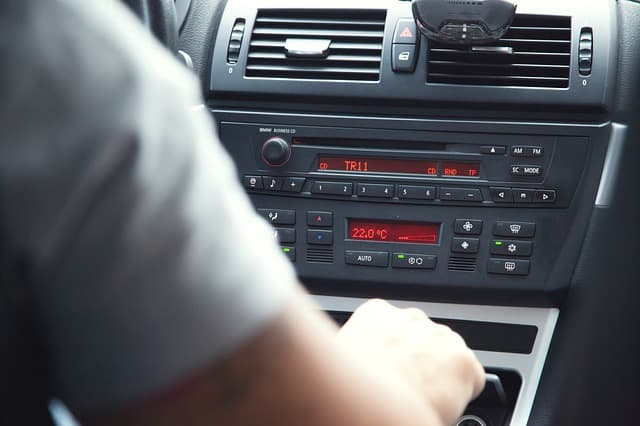Last Updated on March 4, 2025 by Nate Schnell
Water and electricity don’t mix, so it’s completely natural to wonder whether washing your car could harm its electrical system. If you’re new to car maintenance, the idea of spraying water around sensitive electronics might make you nervous.
The truth is, modern cars are designed to handle water exposure in most situations. You can wash your car’s exterior without worrying about damaging the battery or wiring. The interior is also safe to clean as long as you’re careful. However, when it comes to washing the engine bay, that’s where things get a little tricky.
Let’s take a closer look at how to wash your car safely while protecting its electrical system.
Can Washing Your Car Cause Electrical Damage?
The risk of water damaging your car’s electrical components depends on what part of the car you’re cleaning and how you go about it.
For exterior washes, there’s absolutely no danger. Cars are built to withstand rain and moisture, so the electrical system is well-protected. Interior cleaning is also safe, as long as you don’t allow excessive moisture to seep into electronic controls. However, washing the engine bay requires extra precautions. The electrical components under the hood are more vulnerable, and improper cleaning techniques can lead to issues like short circuits or corrosion.
The undercarriage, on the other hand, is exposed to road water daily and generally won’t be affected by a wash. That said, aggressive power washing can cause damage to other parts, so it’s best to leave deep cleaning of the undercarriage to professionals.
Washing the Exterior: No Risk to Electrical Components
Many car owners wonder if water could seep under the hood during an exterior wash and damage the battery or electrical system. The good news is, that’s not something you need to worry about.
Car manufacturers design vehicles with water resistance in mind. All critical electrical components—including the battery, alternator, and wiring harnesses—are shielded from moisture. Rain, splashes, and car washes are all part of normal vehicle exposure, so there’s no danger when rinsing off dirt or grime from the body of your car.
Even if a little water makes its way around the hood area, it won’t reach the electrical system in a way that causes damage. Water naturally drains off the vehicle, and any components that do come into contact with it are designed to withstand occasional exposure.
Cleaning the Interior: Safe with the Right Approach
The interior of your car has its own set of electronic controls, from the infotainment system to power window switches. While these components aren’t as heavily sealed as those in the engine bay, they are still fairly protected from normal use.
When cleaning the interior, the key is to control how much liquid you use. Instead of spraying cleaners directly onto surfaces like the dashboard or control panels, it’s best to apply them to a cloth first. This prevents excess moisture from getting into cracks or buttons, which could potentially lead to malfunctions.
Vacuums and dry microfiber cloths work well for routine cleaning, and for deeper cleans, specialized interior sprays can remove stains and buildup without introducing too much moisture. As long as you’re mindful of how you apply cleaning solutions, you won’t run into any electrical problems.
Washing the Engine Bay: Where You Need to Be Careful
If you’re reading this, chances are you’re most concerned about washing the engine bay. Unlike the exterior and interior, this area has more exposed electrical connections, and improper washing techniques can cause real damage.
Water and cleaning solutions are commonly used in engine bay detailing, but they need to be applied with caution. Electrical components like the battery terminals, sensors, and ignition system aren’t as waterproof as the rest of the car. Excess water exposure can lead to issues like corrosion or short circuits.
The safest approach is to take a few simple precautions before washing. Disconnecting the battery is the best way to prevent accidental electrical flow while cleaning. Some car owners prefer to remove the battery entirely, but if that’s too much of a hassle, simply disconnecting the negative terminal will do the trick.
Covering sensitive electrical components with plastic bags or waterproof material is another good practice. This adds an extra layer of protection and ensures that water doesn’t pool around important connections.
When it’s time to rinse, avoid using a high-pressure hose. A light mist or damp cloth is often enough to remove dirt and degreaser without forcing water into sensitive areas. After washing, give the engine bay plenty of time to dry before reconnecting the battery to ensure everything is completely moisture-free.
Undercarriage Cleaning: No Direct Risk to Electronics
The undercarriage is another area where car owners sometimes hesitate. The good news is, your vehicle is built to handle water exposure here. Rain, puddles, and road grime hit the underside of your car regularly, so there’s little chance of washing causing electrical damage.
However, undercarriage cleaning can pose other risks if done improperly. High-pressure water can dislodge protective coatings or force moisture into areas where rust could develop over time. If you’re unsure about the right approach, professional undercarriage cleaning is often the safest choice.
How to Prevent Electrical Damage While Washing Your Car
Washing your car is essential for maintenance, and with a few precautions, you can do it safely without risking damage to the electrical system.
For interior cleaning, be mindful of excess moisture. Using a damp cloth rather than a saturated one prevents liquid from seeping into electronic controls. The same principle applies to washing the dashboard and infotainment system—avoid direct spraying and wipe down surfaces instead.
If you’re tackling the engine bay, take the time to disconnect the battery before you start. Covering sensitive components adds an extra layer of security, and using controlled amounts of water minimizes risk. Giving the area ample drying time before reconnecting the battery ensures no lingering moisture can cause electrical problems.
In cold weather, be especially cautious. Water takes longer to evaporate in low temperatures, which increases the risk of droplets freezing in sensitive areas. If it’s below freezing, it’s best to hold off on washing your car until temperatures rise.
Common Questions About Car Washing and Electrical Safety
Should You Wash Your Car’s Engine Bay?
Yes, but carefully. A clean engine bay helps prevent buildup and improves visibility when inspecting components. Just be sure to follow safe washing techniques—disconnecting the battery, covering electrical parts, and using minimal water.
Can an Automatic Car Wash Damage My Car’s Electrical System?
No, automatic car washes are safe for electrical components. Modern vehicles are designed to handle this type of cleaning. The only downside is that some automatic washes may be rough on the paint, leading to swirl marks or minor scratches over time.
Final Thoughts
Washing your car is an important part of maintenance, and when done correctly, it won’t harm the electrical system. Exterior and interior cleaning are completely safe as long as you’re careful with moisture levels. The engine bay requires extra precautions, but with proper technique, you can keep it clean without causing damage.
By taking the right steps and following best practices, you can confidently wash your car while ensuring that its electrical system remains fully functional.



